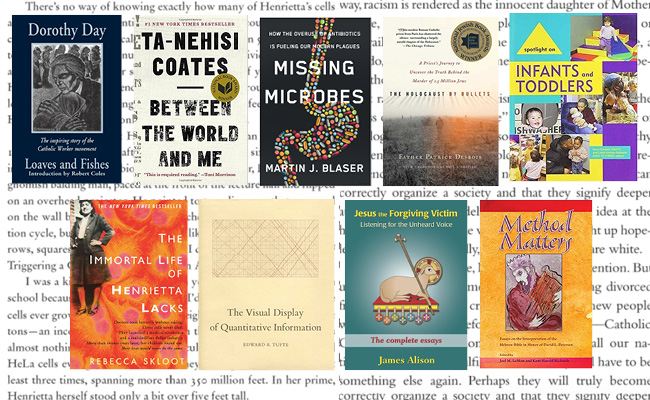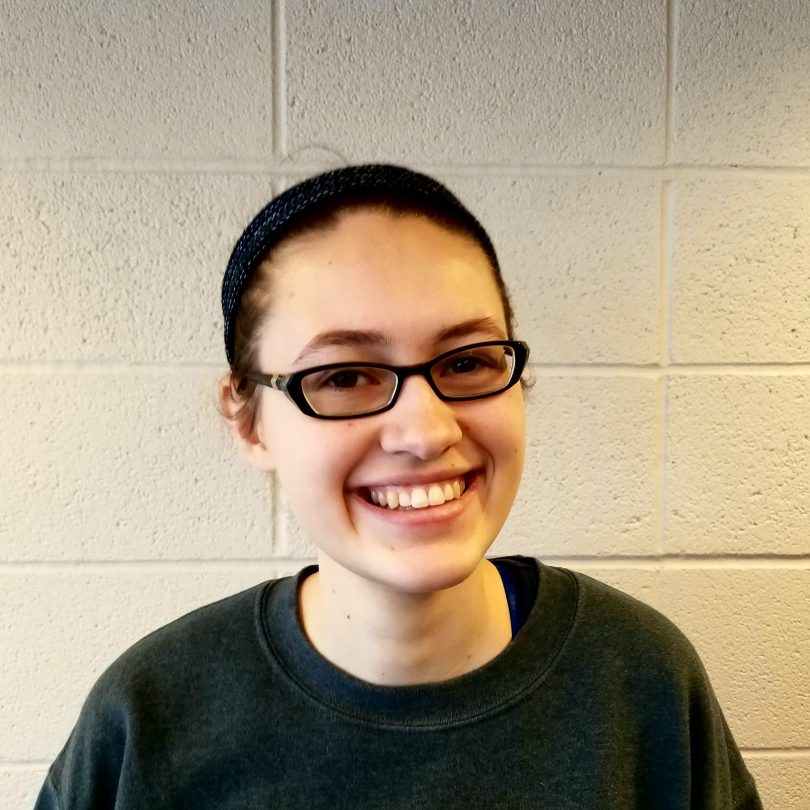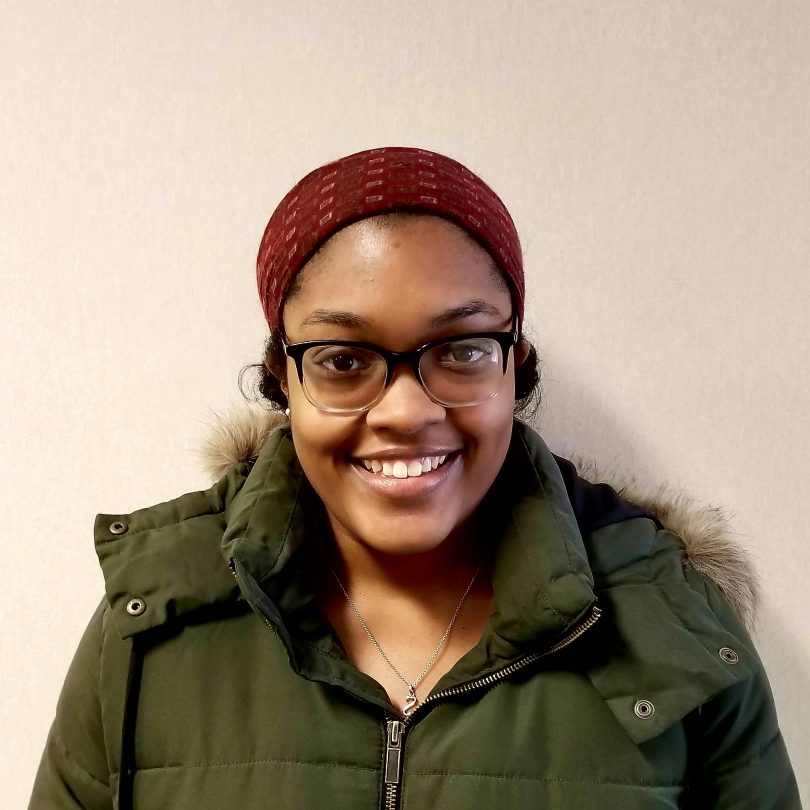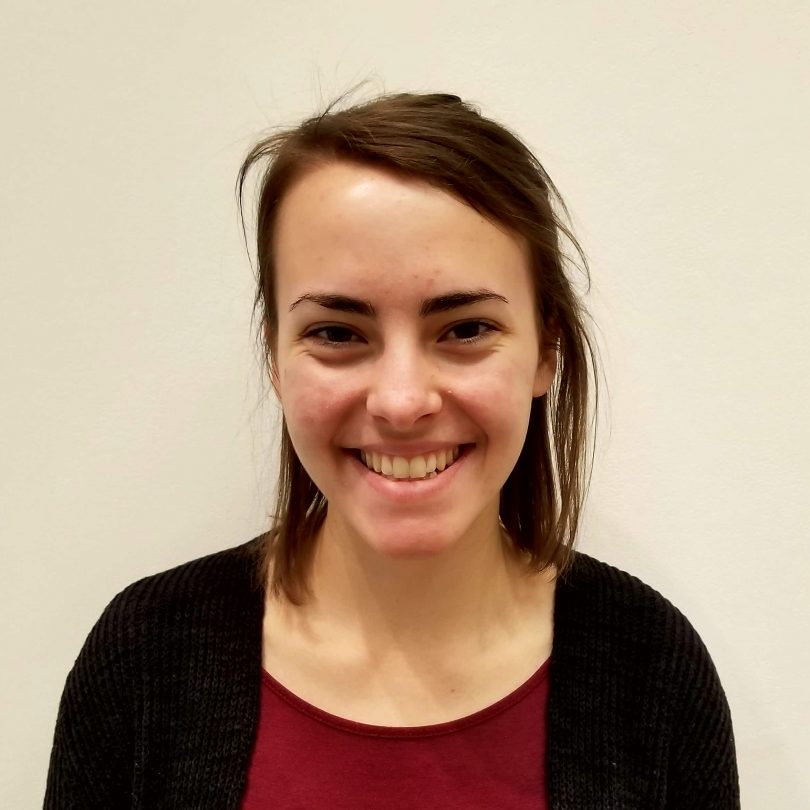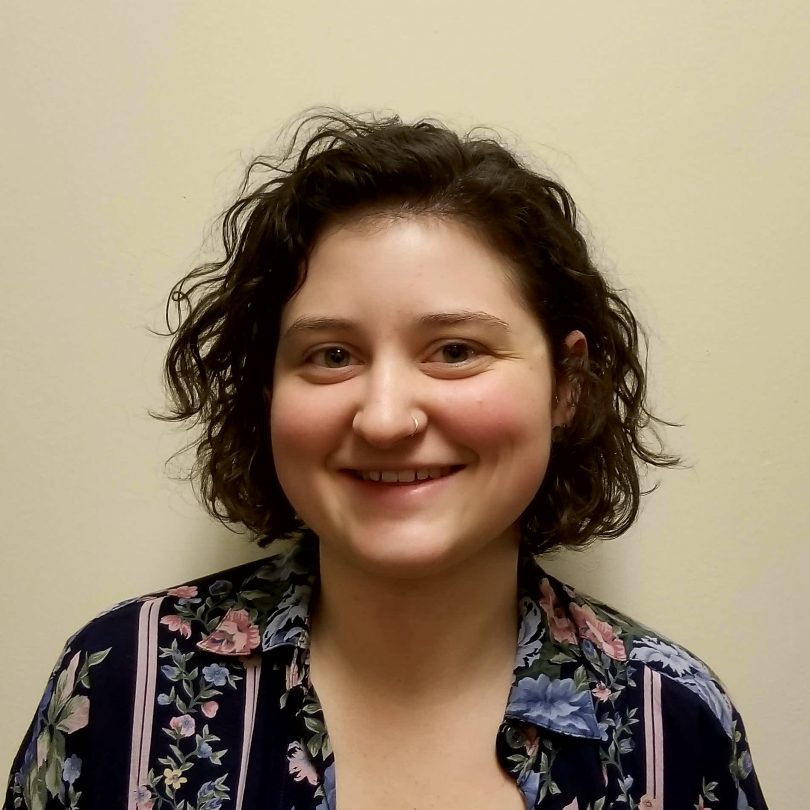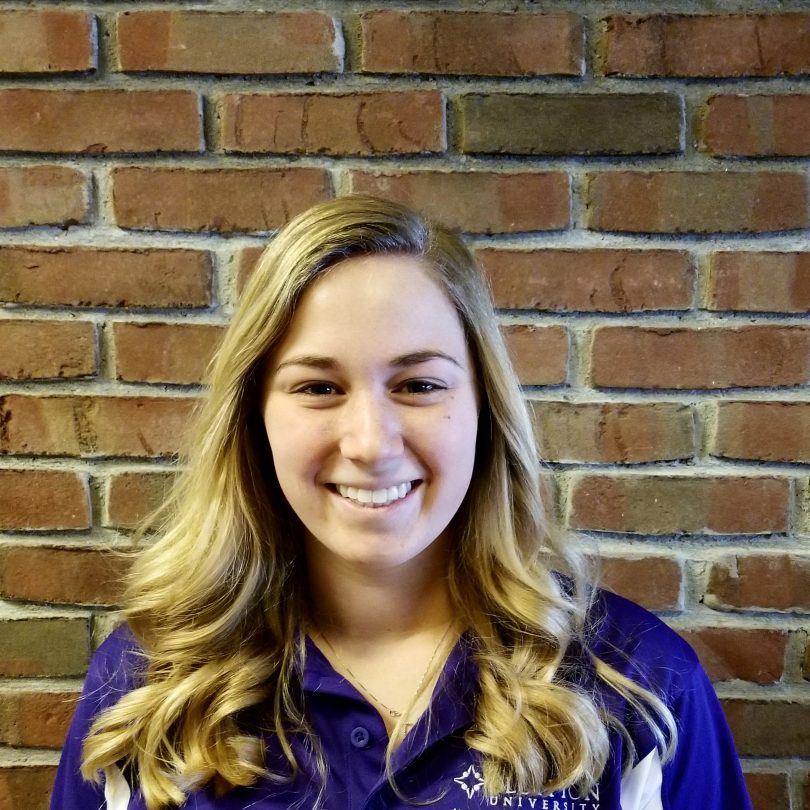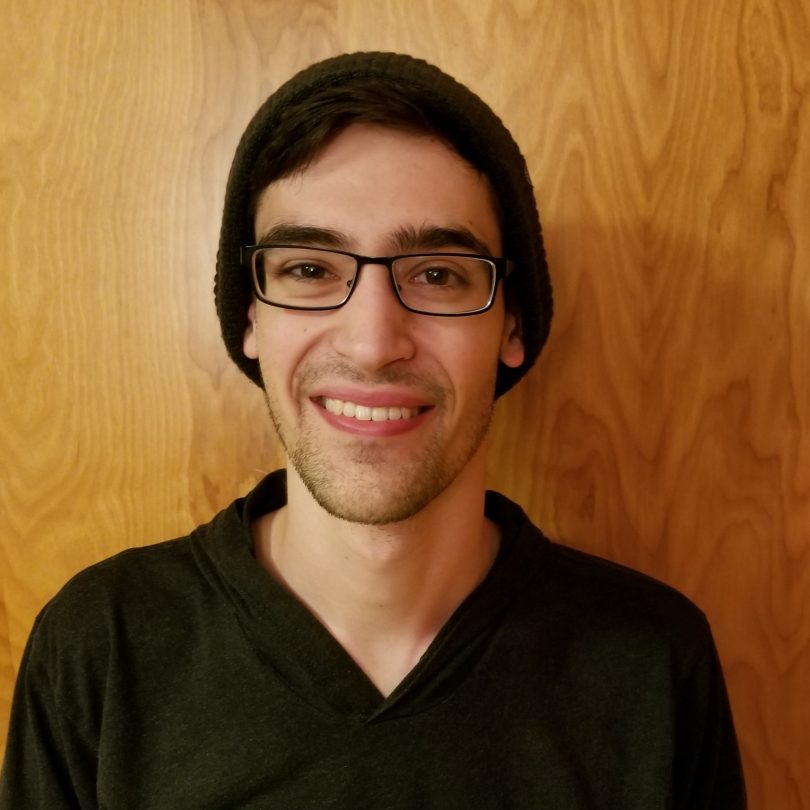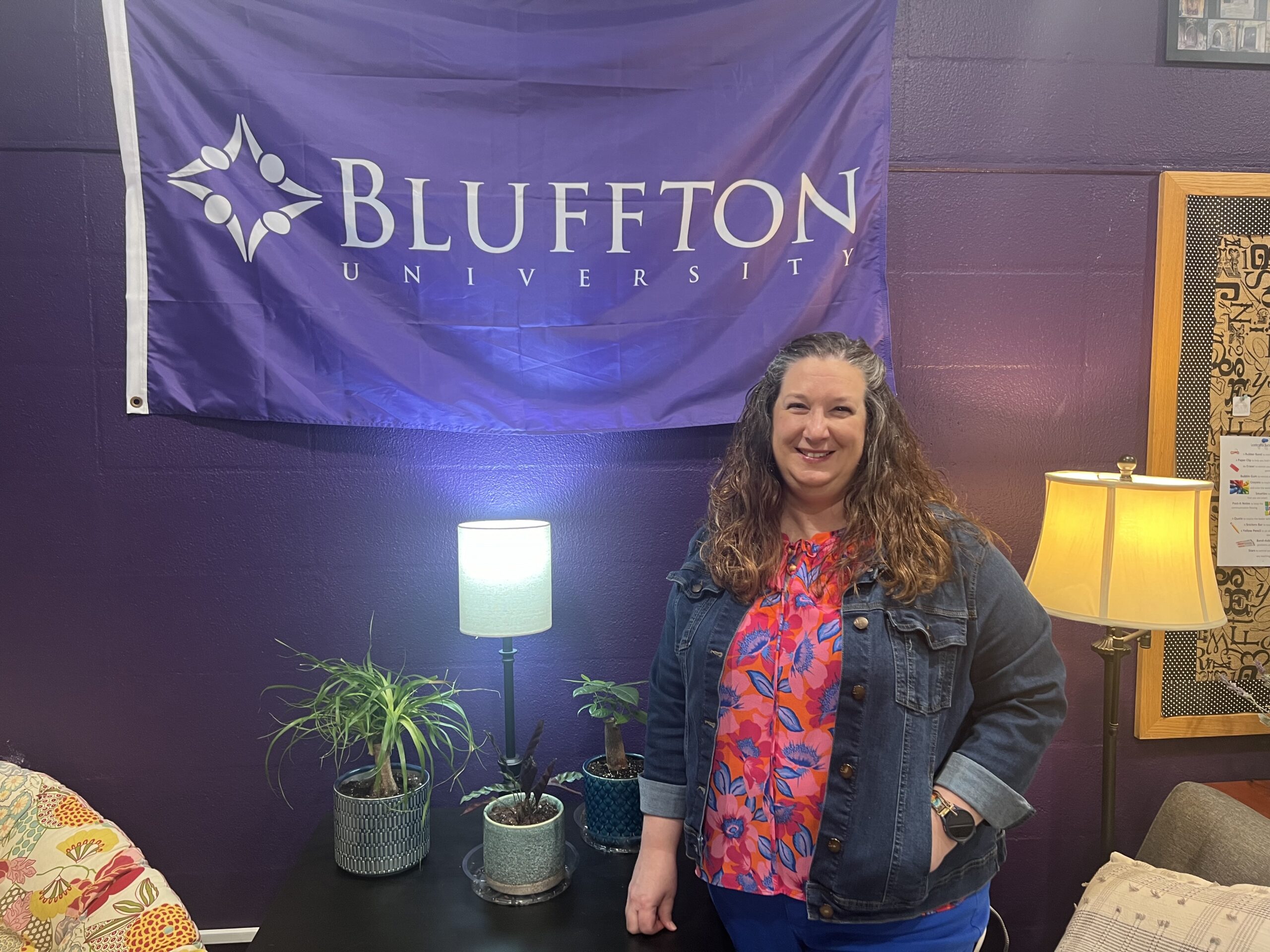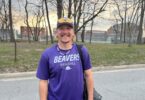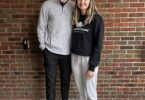Many students dread spending time to complete the readings assigned by professors. However, by skipping out, students may lose exposure to books that have had a significant impact on their fellow students. What follows is a list of professor-assigned books that students say were meaningful to them and reasons why you should read them, too.
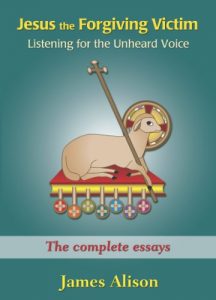 “Jesus the Forgiving Victim” by James Alison – assigned by Dr. Alex Sider, professor of religion; read by Tim Bender ’20, history and Bible and theology major
“Jesus the Forgiving Victim” by James Alison – assigned by Dr. Alex Sider, professor of religion; read by Tim Bender ’20, history and Bible and theology major
Bender said he still keeps this book on his desk because of points that he still finds challenging as well as meaningful sections he believes are worth revisiting. Alison’s theological work explores a variety of areas including theories of atonement and morality, but ultimately focuses on Christian attitudes toward victims. Alison’s perspective as a gay Catholic priest was also a voice in the church Bender had not heard before. Bender also respects and values the vulnerability that comes with staking a claim and writing about what you believe. Pointing out the power of reading this book, Bender said, “You cannot simply discard these ideas after the class ends.”
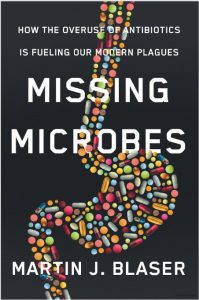 “Missing Microbes” by Martin J. Blaser – assigned by Dr. Angela Montel, professor of biology; read by Taylor Lewis ’18, public health major
“Missing Microbes” by Martin J. Blaser – assigned by Dr. Angela Montel, professor of biology; read by Taylor Lewis ’18, public health major
While Lewis knew vaguely about antibiotic concerns, it wasn’t until this book that she realized, in depth, the issues at hand. Blaser’s writing centers on health problems caused by antibiotics as well as how antibiotic overuse has made them less effective. Lewis said she values the insights she has gained because of the text’s practical applications as a public health major. Reading this text is important, Lewis said, because education helps lead toward preventative measures that are needed.
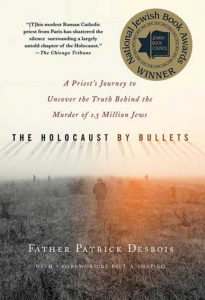 “Holocausts by Bullets” by Patrick Desbois – assigned by Dr. Martina Cucchiara, assistant professor of history; read by Dean Walters ’18, biology and pre-medicine major
“Holocausts by Bullets” by Patrick Desbois – assigned by Dr. Martina Cucchiara, assistant professor of history; read by Dean Walters ’18, biology and pre-medicine major
For Walters, this book offered a new, unique perspective that was outside of the regular study of the Holocaust. In this fascinating book, Desbois recounts what he and a team of researchers discover in the countryside of Ukraine. Not only do they find hidden mass graves of Holocaust victims, but also the untold stories of rural villagers. Walters explained how it was powerful to learn about people’s stories that had never been shared before. This book led to Walters become more interested in the Holocaust and the idea that you don’t really know someone until you ask the right questions.
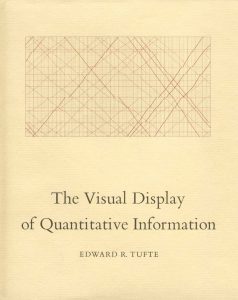 “The Visual Display of Quantitative Information” by Edward Tufte – assigned by Dr. Ross Kauffman, former professor of public health; read by Micah Hunsberger ’18, mathematics major
“The Visual Display of Quantitative Information” by Edward Tufte – assigned by Dr. Ross Kauffman, former professor of public health; read by Micah Hunsberger ’18, mathematics major
Hunsberger eagerly recommended Tufte’s book which centers on the idea of how to convey information well visually. Tufte examines different types of charts and gives specific examples of how to make helpful visualizations. Hunsberger found the idea of maximizing information, while limiting the amount of pen strokes (or ink) useful. Limiting the amount of noise from unnecessary “ink” can make graphs easier to read. Tufte’s book gave Hunsberger insights into why certain graphs are confusing to read and has helped him on the occasions he has had to make graphs himself. Hunsberger said the information in the book isn’t just for math majors, but it can be helpful to any discipline that works with data.
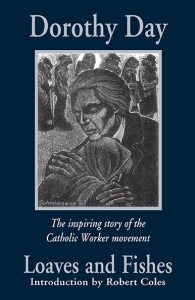 “Loaves and Fishes” by Dorothy Day – assigned by Dr. Perry Bush, professor of history; read by Elizabeth Luersman ’19, art education major
“Loaves and Fishes” by Dorothy Day – assigned by Dr. Perry Bush, professor of history; read by Elizabeth Luersman ’19, art education major
Luersman said she found this book significant as it led to her be more conscientious of how she can do better to serve others and work for the common good. Dorothy Day’s autobiography traces her life of faith in action as the leader of the Catholic Worker Movement. Luersman recommends reading this book because it brings up questions surrounding what it means to live the “good life.”
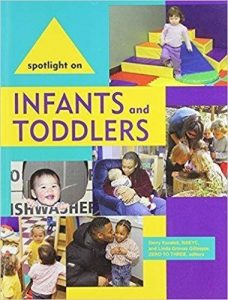 “Spotlight on Infants and Toddlers” edited by Derry Koralek – assigned by Dr. Amy Mullins, assistant professor of education; read by Morganne Faler ’19, early childhood education and intervention specialist major
“Spotlight on Infants and Toddlers” edited by Derry Koralek – assigned by Dr. Amy Mullins, assistant professor of education; read by Morganne Faler ’19, early childhood education and intervention specialist major
This resource is filled with research-based, educational articles to support the development of each child in the classroom. Faler enjoyed these short, easy-to-read articles because, she said, you can get a lot of information out of them. She said that knowing how students develop helps you to know how to teach more effectively. This resource is also practical, and Faler said the knowledge she has gained will be extremely useful in her career.
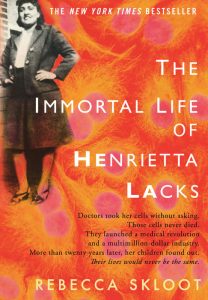 “The Immortal Life of Henrietta Lacks” by Rebecca Skloot – assigned by Dr. Deanna Barthlow-Potkanowicz, assistant professor of psychology; read by Kala Pritchett ’18, physiology major
“The Immortal Life of Henrietta Lacks” by Rebecca Skloot – assigned by Dr. Deanna Barthlow-Potkanowicz, assistant professor of psychology; read by Kala Pritchett ’18, physiology major
Pritchett’s interest in informed consent in the medical field was sparked when she read Skloot’s work. Skloot follows the story of Henrietta Lacks, a poor, black farmer whose cells are taken during a surgery, without her knowledge, to be used for research. While the cells have been vital for development such as the polio vaccine, it raises compelling ethical questions for the field of medicine. Pritchett values the ability to look at this topic and others through a physiological lens. In this case, viewing Henrietta Lack’s case in a different light than a medical doctor would, for example. Pritchett said she has been intrigued by this topic and has continued to study it, even though the class has ended.
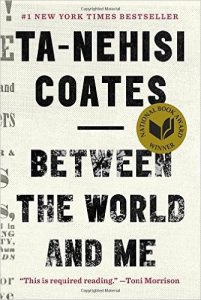 “Between the World and Me” by Ta-Nehisi Coates – assigned by Dr. Perry Bush, professor of history; read by Emily Rush ’19, English education major
“Between the World and Me” by Ta-Nehisi Coates – assigned by Dr. Perry Bush, professor of history; read by Emily Rush ’19, English education major
Rush valued this assigned reading because it pushes her to become more aware of other people’s perspectives and struggles. This autobiography is written as a letter to Coates’ son about the racial problems he experienced growing up as a black man in Baltimore. Rush said that although Coates’ perspective is different from her own, it was written in a way that allowed her to see from that perspective easily and understand his struggles. Rush said that by placing your own experiences next to others, you are able to better understand the ways in which you can help.
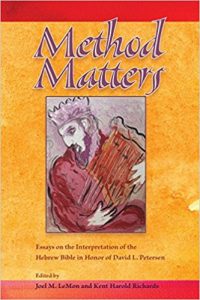 “Method Matters” by Joel Lemon and Kent Harold Richards – assigned by Dr. Jackie Wyse-Rhodes, assistant professor of religion; read by Colton Eby ’18, youth ministry major
“Method Matters” by Joel Lemon and Kent Harold Richards – assigned by Dr. Jackie Wyse-Rhodes, assistant professor of religion; read by Colton Eby ’18, youth ministry major
Understanding the different angles people come at the Bible has been significant in Eby’s life. Lemon and Richards present a look at a variety of methods of interpretation with the Hebrew Bible. Eby said this text has helped him identify how people interpret the Bible and then use this to meet them at their place. It is significant relationally, Eby said, because it helps the conversation flow and not get heated, which is a key part of his major in youth ministry.

